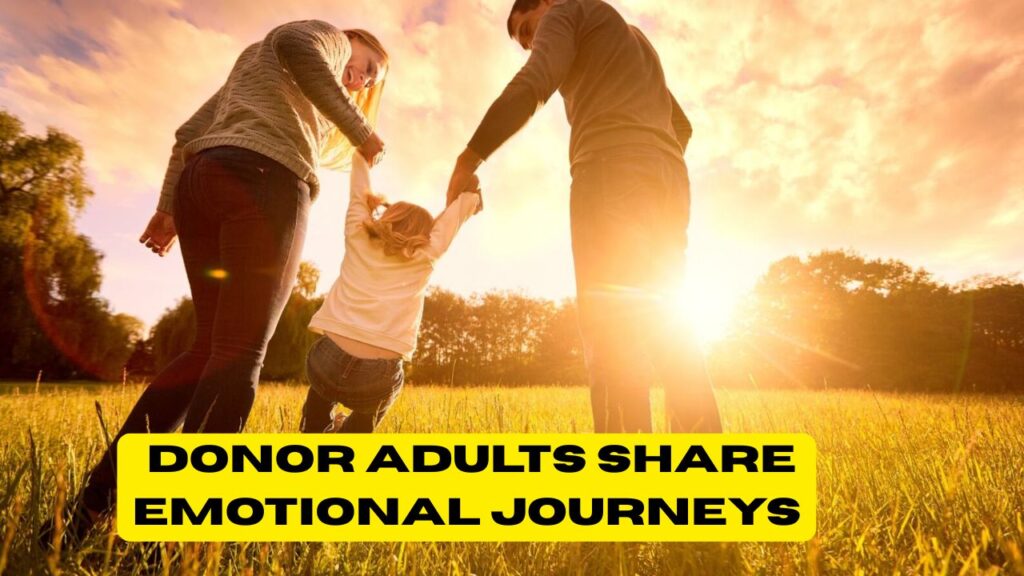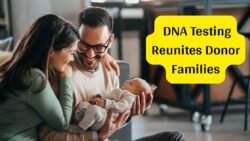Emotional Health of Donor-Conceived Adults – Donor-conceived adults often navigate a complex emotional journey as they seek to understand their origins, identity, and sense of belonging. Many grow up with questions about their biological roots and personal history, especially in societies where discussions around donor conception remain limited. The emotional health of these individuals is deeply connected to how openly families, donors, and institutions address these conversations. By sharing stories and experiences, donor-conceived adults in Australia and beyond are helping to break the silence, promote empathy, and advocate for greater transparency and emotional support.

Emotional Wellbeing of Donor-Conceived Adults in Australia
In Australia, the emotional wellbeing of donor-conceived adults has become an important topic in mental health and family studies. Many individuals express feelings of confusion, loss, or curiosity about their genetic identity, particularly if they discover their conception story later in life. Counselling, support groups, and organisations like Donor Conceived Australia play a crucial role in helping them process their emotions. Open discussions about donor identity and genetic heritage empower these adults to build stronger connections with their families and communities, fostering better mental and emotional health outcomes.
 Building Connections – How Donor Conceived People Find Family Through DNA Testing & Support Groups
Building Connections – How Donor Conceived People Find Family Through DNA Testing & Support Groups
Identity and Self-Discovery Among Donor-Conceived Individuals
For many donor-conceived individuals, identity formation involves more than just personal growth—it’s a journey toward self-acceptance and understanding one’s biological origins. The lack of access to information about their donors often creates emotional distress and a sense of incompleteness. However, with advocacy for open donor registers and DNA testing, more people are uncovering their genetic backgrounds. This process of self-discovery can be emotional but also healing, offering closure and strengthening the sense of belonging for donor-conceived adults as they connect with half-siblings or extended biological families.
| Aspect | Details |
|---|---|
| Key Focus | Emotional wellbeing and identity of donor-conceived adults |
| Support Organisations | Donor Conceived Australia, VARTA, counselling groups |
| Common Challenges | Identity confusion, lack of information, emotional distress |
| Helpful Resources | Therapy, community support, DNA databases |
| Goal | Promoting openness, emotional healing, and belonging |
Importance of Family Support for Donor-Conceived Adults
Family understanding and transparency are essential for the emotional growth of donor-conceived adults. When parents are open about the conception story from an early age, it builds trust and reduces emotional strain. Families who engage in honest conversations help donor-conceived children feel accepted and valued. This openness not only prevents future identity crises but also strengthens emotional resilience. Many Australian families now embrace early disclosure and use professional guidance to ensure their children grow up with clarity, confidence, and a positive self-image.
Community Support and Advocacy for Donor-Conceived People
Community advocacy has played a vital role in improving emotional health outcomes for donor-conceived adults. Organisations such as Donor Conceived Australia provide platforms for individuals to share stories, find support, and push for legislative changes. These communities help reduce isolation and empower individuals to advocate for their rights, such as access to donor information. Through shared experiences, donor-conceived people find belonging and mutual understanding, contributing to emotional stability and broader awareness of the human side of donor conception.
Frequently Asked Questions (FAQs)
1. What challenges do donor-conceived adults face emotionally?
They often struggle with identity confusion, curiosity about biological roots, and emotional distress related to secrecy or late disclosure.
2. How can families support donor-conceived children?
Families can promote emotional health by being open, honest, and supportive while discussing donor conception early in life.
3. Are there support groups for donor-conceived adults in Australia?
Yes, organisations like Donor Conceived Australia and VARTA provide emotional and legal support to donor-conceived people.
4. Why is identity important for donor-conceived individuals?
Understanding their biological background helps donor-conceived adults develop self-awareness, emotional security, and a sense of belonging.
